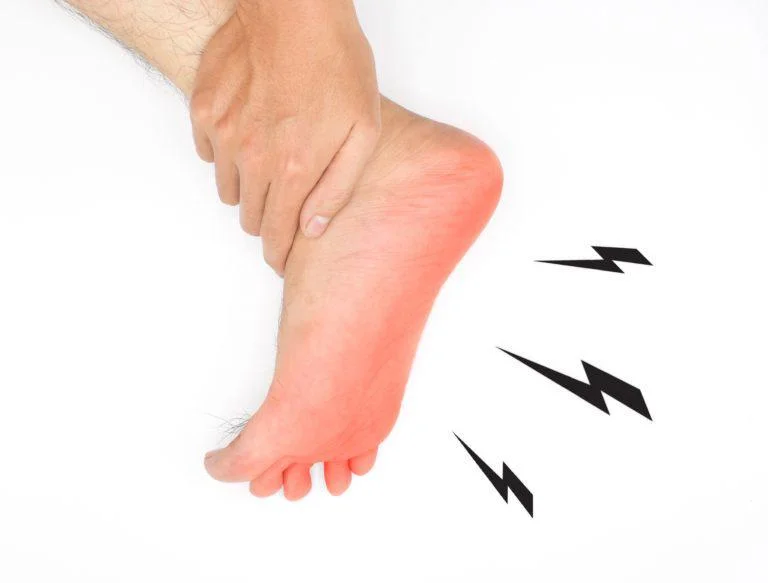Anxiety and multiple sclerosis (MS) are two distinct conditions that can have some overlapping symptoms. Anxiety is a psychological condition characterized by excessive worry, fear, and apprehension about future events or circumstances. It can manifest itself physically in the form of physical symptoms such as tingling sensations, muscle tension, and sweating. MS, on the other hand, is a neurological condition that affects the central nervous system and causes a range of symptoms, including tingling sensations.
In this article, we will discuss the differences between anxiety tingling and MS tingling in detail, including the anatomy of the nervous system, the causes of each condition, the symptoms, the diagnosis, and the treatment options.
Anatomy of the nervous system
Before we dive into the differences between anxiety tingling and MS tingling, it’s important to understand the anatomy of the nervous system. The nervous system is divided into two main parts: the central nervous system (CNS) and the peripheral nervous system (PNS). The CNS consists of the brain and spinal cord, while the PNS consists of the nerves that connect the CNS to the rest of the body. The PNS is further divided into the somatic nervous system and the autonomic nervous system.
The somatic nervous system controls voluntary movements and sensory information from the body, while the autonomic nervous system controls involuntary functions such as heart rate, digestion, and breathing. The autonomic nervous system is further divided into the sympathetic nervous system, which prepares the body for fight or flight responses, and the parasympathetic nervous system, which promotes rest and relaxation.
Now let’s move on to the differences between anxiety tingling and MS tingling.
Causes of anxiety tingling
Anxiety tingling, also known as paresthesia, is a common symptom of anxiety and stress. It is often described as a feeling of pins and needles or numbness in the extremities, such as the hands, feet, arms, or legs. Anxiety tingling can also occur in other parts of the body, such as the face or scalp.
The exact cause of anxiety tingling is not fully understood, but it is thought to be related to the body’s response to stress. During times of stress or anxiety, the body releases hormones such as adrenaline and cortisol, which can cause changes in blood flow and nerve function. These changes can lead to a decrease in carbon dioxide levels in the blood, which can cause tingling sensations.
Anxiety tingling can also be caused by muscle tension and poor posture. When muscles are tense, they can compress nerves and cause tingling sensations. Poor posture can also lead to nerve compression and tingling sensations.
Symptoms of anxiety tingling
The main symptom of anxiety tingling is a feeling of pins and needles or numbness in the extremities or other parts of the body. Other symptoms of anxiety tingling may include:
- Burning or prickling sensations
- Itching
- Tenderness
- Muscle weakness
- Difficulty with coordination
Diagnosis of anxiety tingling
Diagnosing anxiety tingling involves ruling out other possible causes, such as nerve damage or vitamin deficiencies. Your doctor may perform a physical exam, take a medical history, and order blood tests to check for underlying conditions.
If your doctor determines that your tingling sensations are caused by anxiety or stress, they may recommend relaxation techniques, such as deep breathing exercises or meditation. They may also recommend lifestyle changes, such as getting regular exercise, practicing good posture, and reducing stress.
Treatment of anxiety tingling
Treatment for anxiety tingling depends on the underlying cause. If the tingling sensations are caused by anxiety or stress, treatment may include relaxation techniques, lifestyle changes, and therapy. Medications may also be prescribed to help manage anxiety and reduce tingling sensations.
Causes of MS tingling
MS tingling is a symptom of multiple sclerosis, a neurological condition that affects the central nervous system. MS is caused by damage to the myelin sheath, a protective covering around nerve fibers, which disrupts the transmission of nerve signals. The exact cause of MS is not known, but it is thought to be an autoimmune disorder, where the body’s immune system attacks and damages the myelin sheath.
Symptoms of MS tingling
MS tingling is usually described as a feeling of pins and needles or numbness that occurs in a specific area of the body, such as the face, arms, or legs. The sensations can be mild or severe and may come and go. Other symptoms of MS may include:
- Fatigue
- Muscle weakness or stiffness
- Difficulty with coordination or balance
- Vision problems, such as blurred vision or double vision
- Speech problems
- Bowel or bladder problems
Diagnosis of MS tingling
Diagnosing MS tingling involves a comprehensive neurological examination, including a medical history, physical exam, and diagnostic tests. The most common test used to diagnose MS is magnetic resonance imaging (MRI), which can detect areas of inflammation and damage in the brain and spinal cord.
Other tests that may be used to diagnose MS include:
- Lumbar puncture: a test that involves removing a small amount of cerebrospinal fluid from the spinal cord to look for signs of inflammation or infection
- Evoked potentials: a test that measures how quickly nerve signals travel from the eyes, ears, or skin to the brain
Treatment of MS tingling
Treatment for MS tingling depends on the severity and frequency of the symptoms. Medications may be prescribed to manage the symptoms and slow the progression of the disease. These medications may include:
- Corticosteroids: drugs that reduce inflammation and swelling in the nervous system
- Disease-modifying therapies: drugs that can modify the course of the disease and reduce the frequency and severity of symptoms
In addition to medications, physical therapy, and occupational therapy may be recommended to help manage symptoms and improve quality of life.
Similarities Between Anxiety Tingling And MS Tingling
Anxiety tingling and MS (multiple sclerosis) tingling share some similarities, also, here are some similarities between the two:
- Tingling sensation: Both anxiety and MS tingling can cause a sensation of tingling or pins and needles in different parts of the body. This sensation is often described as a feeling of numbness, prickling, or crawling on the skin. It can occur in various parts of the body, such as the hands, feet, arms, legs, and face. The tingling sensation may be mild or severe, and it can come and go or be constant.
- Triggered by stress: Anxiety tingling can be triggered by stress and anxiety, which can cause changes in breathing and heart rate that affect the flow of blood and oxygen to the body. This can lead to a sensation of tingling or numbness in the hands, feet, or face. Similarly, MS tingling can be triggered by physical or emotional stress, which can exacerbate the symptoms of the disease.
- Temporary: Both types of tingling can be temporary and may resolve on their own. Anxiety tingling is often short-lived and may go away once the trigger of stress or anxiety is resolved. Similarly, MS tingling may come and go, depending on the severity of the disease and the trigger of stress.
While anxiety tingling and MS tingling are different in many ways, they share some similarities in terms of the tingling sensation, trigger of stress, and temporary nature of the symptoms. However, it is important to note that these similarities do not necessarily mean that the underlying causes or treatments for anxiety and MS tingling are the same.
Conclusion
The symptoms of anxiety tingling and MS tingling can be similar, but there are some differences. Anxiety tingling is usually more diffuse and can occur in multiple areas of the body, while MS tingling is typically more localized and may be accompanied by other neurological symptoms such as muscle weakness, coordination problems, and vision changes. In addition, anxiety tingling is typically short-lived and resolves once the underlying anxiety or stress is relieved, while MS tingling may be persistent and chronic.
The treatment for anxiety tingling and MS tingling is also different. Anxiety tingling can often be managed with relaxation techniques, stress-reduction strategies, and cognitive-behavioral therapy. Medications such as anti-anxiety drugs may also be prescribed in some cases. In contrast, the treatment of MS tingling typically involves medications such as corticosteroids and disease-modifying therapies that can slow the progression of the disease and manage symptoms.






